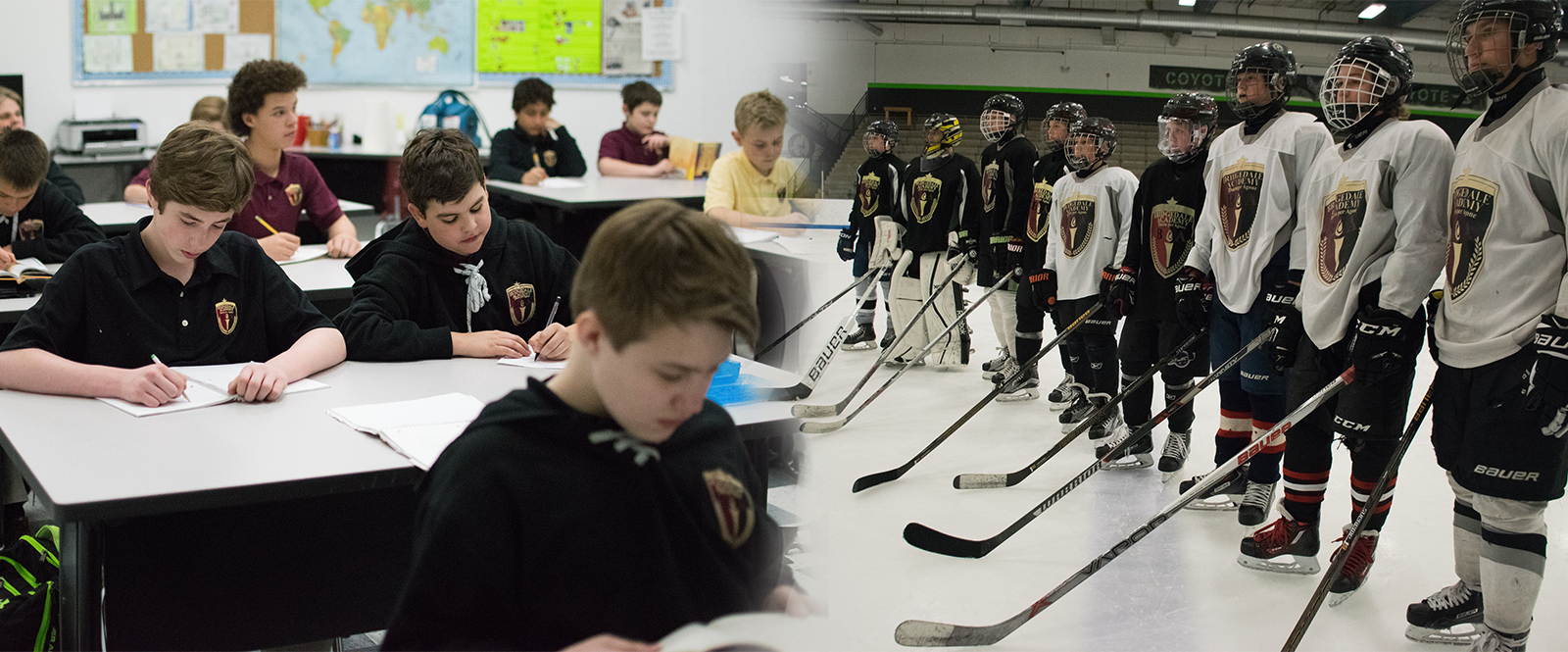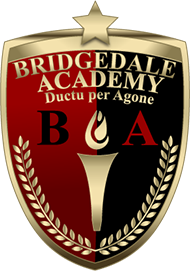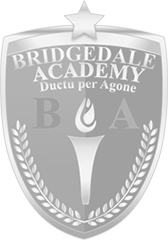Why Students Perform Better when Class Size is Smaller
by Mike McPartlin, Headmaster, Bridgedale Academy
Common Sense and Research Agree
Simple common sense would suggest that small class size is virtually always better for a given student. After all, if there are fewer students in the classroom, the teacher will obviously have a greater opportunity to work with each child.
And research confirms that smaller class sizes indeed yield academic advantages. This is especially true at the elementary and middle school levels, and the evidence suggests it is even more beneficial for boys. There is some debate as to WHY this is so, but the results are inescapable.
The most often cited reasons for these positive results are:
- The more personalized attention each student gets
- The lack of anonymity
- The more caring environment
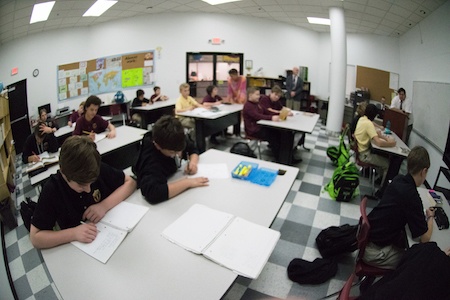
Exclusive prep and boarding schools rely on small class sizes
In another application of simple common sense, just look at any of the top prep and/or boarding schools in the US. All these elite schools promise small class sizes. In fact, it is generally one of the most prominent things they say about themselves.
Some of these highly-rated schools have been around since the 1700s and they have been getting it right since day one. They are acknowledged to the best of the best. And if the best of the best insist on small class sizes, there is clearly something to it.
Possibly even some health benefits
An interesting article at ClassSizeMatters.org discusses numerous studies and points out how the studies identify a number of positive trends associated with small class sizes, including:
- Public health benefits, including fewer hospital admissions and less use of antibiotics;
- Fewer students being held back to repeat grades; and
- Academic improvement that carries over into high school and beyond.
National surveys of educators indicate they believe that smaller class size is “the most effective method to improve the quality of teaching.”
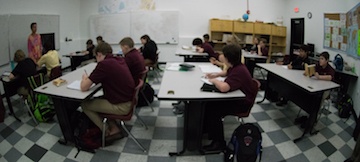
A small class has fewer than 20 students
A study by the National Council of Teachers of English defines a “small class” as one made up of fewer than 20 students. This study also discusses the academic gains associated with smaller class sizes, but it goes on to tout prominently that:
- The academic gains become more prominent and more enduring the longer the students are in smaller classes
- The quality of language arts and writing skills are generally improved
- Student engagement is enhanced, with students participating more and developing better relationships with teachers and classmates
- There is less disruptive behavior and therefore more instruction and learning
- Students develop greater ability to adapt to intellectual and educational challenges
- Smaller class sizes also appear to positively influence long-term success, including an increased probability of attending college, greater earning potential and improved citizenship
The benefits of small class size show in both private and public schools
While the benefits of small class sizes are commonly associated with private schools, a separate study focusing on public schools also points out the following benefits of smaller class sizes:
- Small class sizes lead to more one-on-one attention from the teacher
- Students get to know each other better - no one is just a face in the crowd
- Teachers can tailor the instruction more individually
- There’s less disruption, and less need for repetitive disciplining
- There’s more time for instruction
- Small class sizes are quieter
Because there is a cost involved with reducing existing class sizes, however, it is often not possible to do so, especially in public schools.
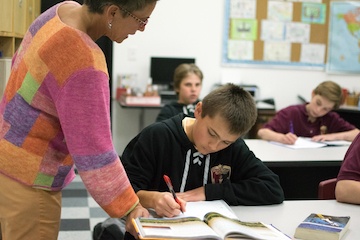
Quality of curriculum, teacher, etc. also have an impact
It is of course true that small class size is not the only variable at work. The following factors also contribute to the gains observed:
- The quality of the curriculum
- The size of the school itself
- The home environment of the students
- The quality of the teacher
- The leadership of the school.
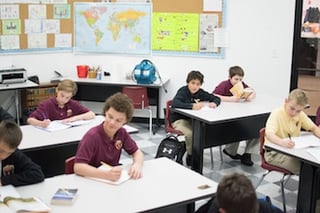
School size also has an impact
There are also studies that discuss the effect of overall school size (i.e. and not just the class size) on academic achievement. Most research points to an inverse relationship between school size and achievement. One such study out of North Carolina, citing three other separate studies, concludes flatly that “smaller elementary schools tend to have higher achievement.”
Conclusion
There is a strong consensus that small class size is one of the leading factors that will lead to improved academic performance, especially for elementary and middle school students. And most especially for boys.
Yet the benefits of small class size are more wide-ranging than simply improved academic performance. It is clear there are additional long-term benefits that stay with students through high school and college, and into their adult lives.
"At Bridgedale we are committed to the development of our young student-athletes, helping them to develop their physical and mental skills so they can perform at their best when it matters most, no matter the arena of life that challenges them. If you would like to learn more about Bridgedale Academy, please click the button below so we can schedule a time to chat."
Mike McPartlin, Headmaster, Bridgedale Academy
And what do Bridgedale teachers say about Bridgedale?
"This is such a special place!! It is life changing for these boys as it centers around strong relationships that encourage strong academic growth. It’s a hockey school, but so much more than that.
"It’s a pleasure to come to work everyday. Thank you for creating such a positive, caring environment."
Kristi Florey, Bridgedale Math Teacher
Attention 4th Graders
Bridgedale Academy is accepting a limited number of 4th graders for the 2023-24 school year, on a case-by-case basis. Please call me at 708-712-5079 to inquire.
Mike McPartlin, Headmaster

Bridgedale students LOVE going to school,
and so they THRIVE in it.
They LOVE coming to school every day.
And as a result, they are thriving.
They engage academically ...
... and so they come to love learning.
They also love that they get to work on the sport they have such passion for, while also training to become better athletes, all as part of their school day.
They train athletically ...
... and so they more fully develop their skills.
They LOVE getting so much better ... so much sooner.
They are physically fit and mentally alert ... they are thriving.
“Every shot you don't take won't go in.”
Wayne Gretzky
Bridgedale is now enrolling students for the 2023-24 School Year.
Bridgedale Academy is an all-boys school for athletes, a prep school for serious youth hockey players. We offer the 4th through 8th grades. In addition to our winning combination of sports and academics, we focus on leadership training. We use a classical academic curriculum and our graduates go on to attend some of the most prestigious high schools in the midwest, including Lake Forest Academy, Culver Military Academy, Shattuck St. Mary’s, Northwood School, Benet Academy, Fenwick Prep, Loyola Academy, St. Ignatius Prep, Marmion Academy, St. Viator, Latin School and Providence Catholic. We pride ourselves on being the top youth hockey prep school in the nation. Our grads go on to top colleges and universities, including Notre Dame, Harvard, Denver, Ohio State, Bentley, Western Michigan, Miami (OH), Boston College, Tufts, Nebraska (Omaha), Hobart, Adrian, MSOE and more. More than thirty (30) of our graduates have already received their NCAA Division 1 college hockey commitments. Seven (7) of our grads have gone on to compete for USA Hockey’s National Team Development Program (NTDP). A number of our grads have been NHL-drafted (one made his NHL debut this past season). Our grads play at all levels of college hockey and many are now playing junior hockey in the USHL, the NAHL and the OHL.
